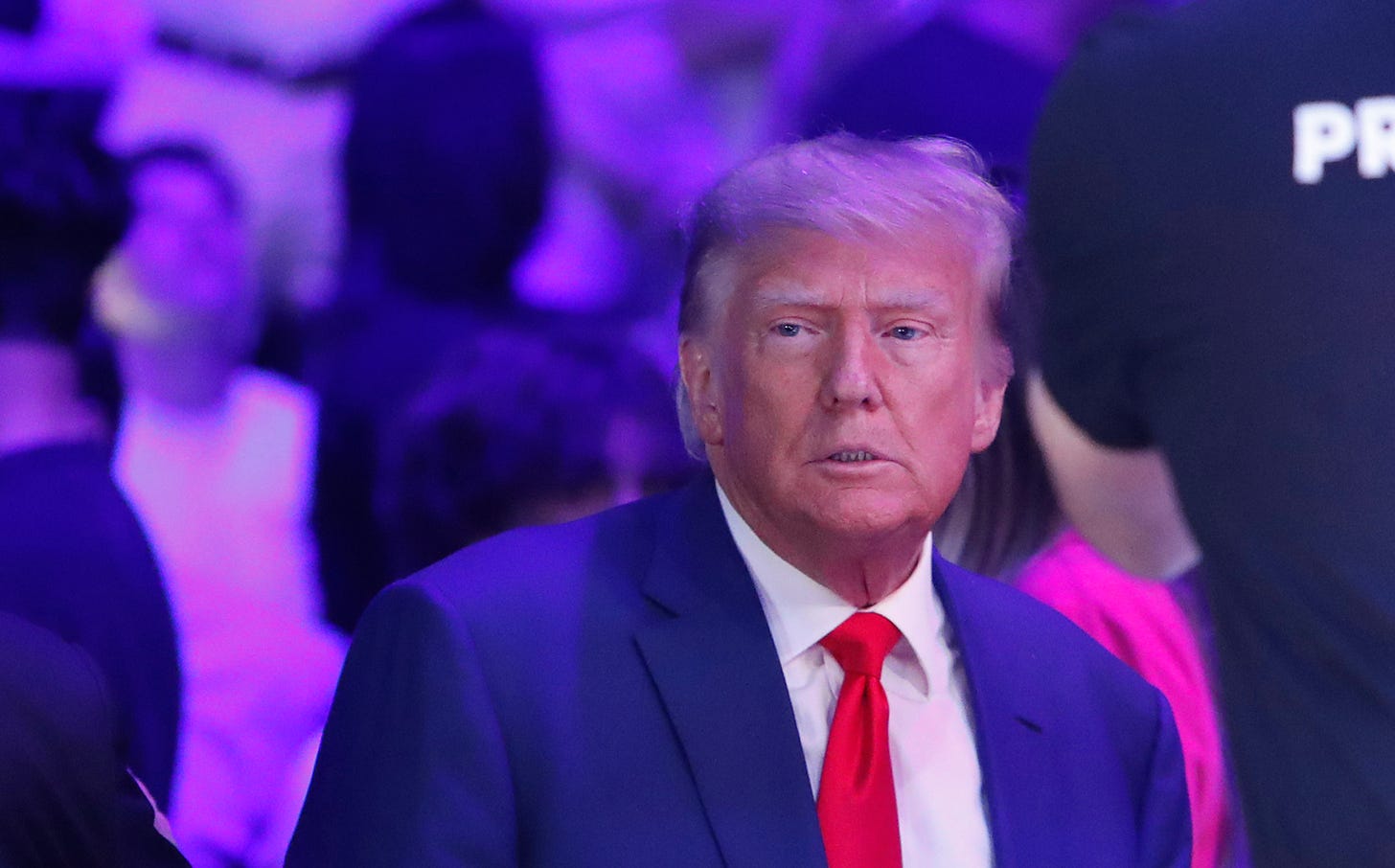Trump Plays His Delay Game in Late-Night Florida Filing
And he wants you to know he’s the real victim here.
LATE MONDAY NIGHT, Donald Trump filed his response to Special Counsel Jack Smith’s proposed December 11 trial date for Trump’s Florida national security case. To the surprise of no one who’s paid attention to the former president’s legal maneuvers, he didn’t propose an alternative date.
Rather, he said in effect, “It’s too early to set any date at all. We’ll tell you later when we’re good to go.”
In Trump’s litigation, delay is the name of the game—especially now as a federal criminal defendant, following his indictment last month by a Florida grand jury for obstructing justice and willfully retaining top secret government documents he had no right to possess.
His strategy is to stall so he isn’t tried before the 2024 presidential election. If he becomes the official nominee at the Republican convention next July—an increasingly likely prospect—or even if he wins enough primaries to informally clinch the nomination, he may be able to convince judges to indefinitely postpone a trial. And if he were to win in November 2024, then soon enough he would have his own Justice Department declare the indictment a witch hunt, end the prosecution, and turn the tables on his enemies.
So right out of the gate, in his first filing in the case before Judge Aileen Cannon, Trump had his lawyers call for a timeout. They want everything postponed. See no trial date, hear no trial date, speak no trial date:
[T]he Court should, respectfully, before establishing any trial date, allow time for development of further clarity as to the full nature and scope of the motions that will be filed, a better understanding of a realistic discovery and pre-trial timeline, and the completion of the security clearance process.
What kind of dressing would you like on your word salad?
Trump could at least have said, “Let’s start the trial in December 2024 after the election is over.” At most, he hints at it: “Proceeding to trial during the pendency of a Presidential election . . . will . . . limit the Defendants’ ability to secure a fair and impartial adjudication.”
The problem with suggesting a specific date soon after the election, from his team’s point of view, is the possibility that the judge might “split the baby” and choose a date midway between the two sides’ proposals. That could mean a late spring trial that finishes well before the election. A Politico/Ipsos poll last week says that a conviction could cost Trump more than a quarter of Republican votes.
So at this stage, Trump would rather go for broke and hope Judge Cannon buys his argument.
TWO OTHER THINGS STAND OUT about Trump’s midnight filing. First, much of it reads like the law-talk equivalent of Trump’s familiar grievance shtick. Second, his lawyers cite no precedent for refusing to propose any date at all.
Trump’s filing implies that he’s at some abnormal disadvantage: “The Government’s investigation . . . has been ongoing for over a year. . . . [Prosecutors] collected many hundreds of thousands of documents [and] interviewed dozens of witnesses.”
Neither the time nor the number of witnesses is unusual in federal white collar cases. Neither justifies silence about offering a trial date.
But it gets worse, victim Trump complains: “The Government’s efforts are ongoing, and the Defendants have no insight into when this effort will be complete, nor do any of the parties know when the classified discovery will be made available to the Defendants.”
We’ve all heard this sort of thing from Trump before—variations on “Because I’m treated so unfairly, give me what I want.” In this case, “Let me have some delay before I propose further delay.”
Now the second point, Trump’s lack of on-point legal authority. The best his legal team could come up with was the 1992 Florida prosecution of Manuel Noriega, Panama’s former president, for drug running, racketeering, and money laundering. (He got forty years.)
Trump’s lawyers say the Noriega case stands for the proposition “that it is reasonable to delay trial where ‘discovery would be both complicated and extensive, . . . [involving] documents . . . which are sensitive or classified and therefore subject to elaborate security measures.’”
What they don’t say is that the delay came after defendant Noriega requested a specific trial date, precisely what Trump refuses to do. They offer no precedent in which a court accepts a defendant’s request for an indefinite postponement of a trial setting.
Of course, there was also no precedent for Judge Cannon’s legally untenable September 2022 decision to appoint a special master to review the documents the FBI seized in the court-authorized search of Mar-a-Lago. The Court of Appeals for the Eleventh Circuit promptly shot down that ruling like a clay pigeon.
How Judge Cannon responds to Trump’s audacious plea this round may well tell us about whether she learned from the appellate court’s slapdown for treating a former president differently than other defendants.
You don’t need to be Oliver Wendell Holmes to see when a defendant’s game is delay. Before long, we’ll know whether Judge Cannon is willing to play it.




